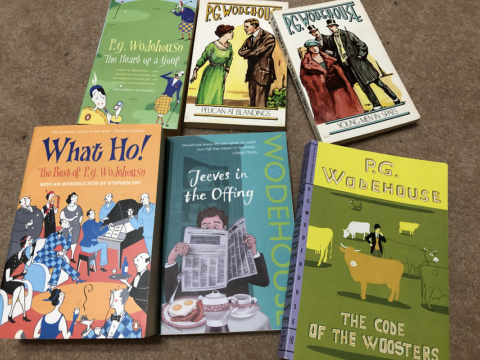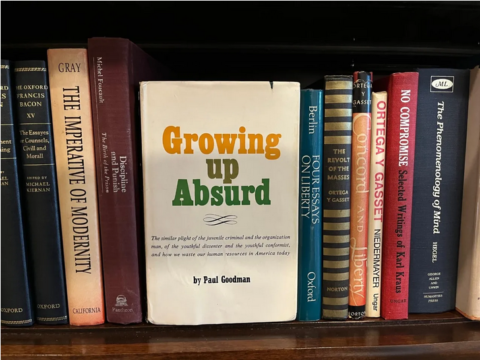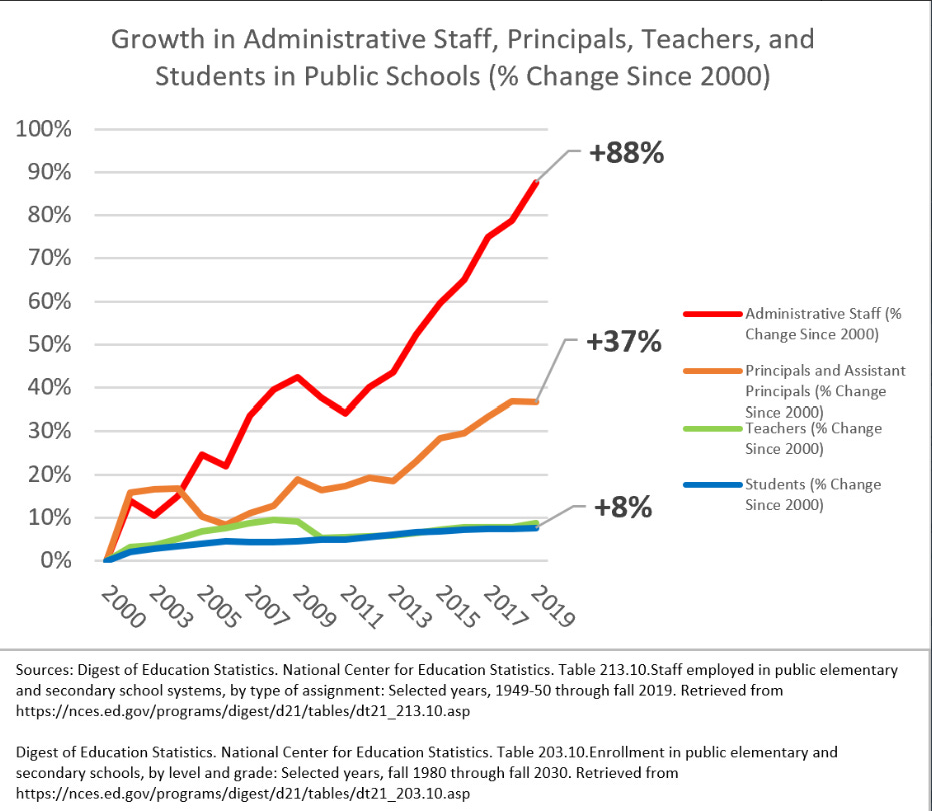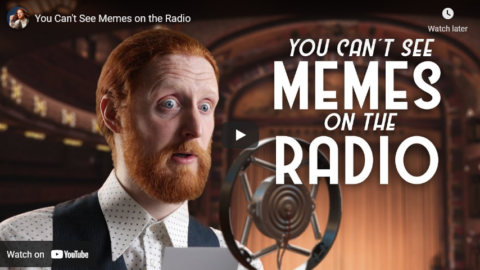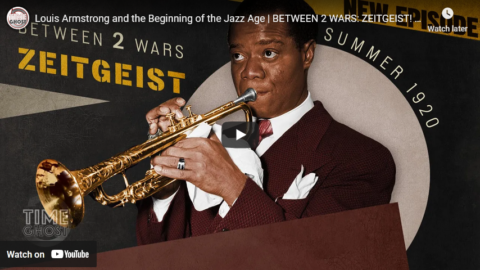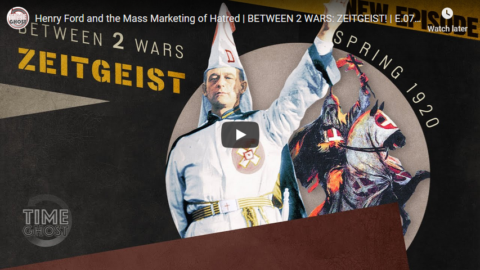Lately some have reminded us of the inherent difficulties in defining Canadian content, especially where a work is the product of several collaborators. Is a movie Canadian by virtue of its actors? Director? Crew? Location? Theme? Even as applied to individuals: Should citizenship be the criterion? Birthplace? Residency? Subject matter?
But the real folly of CanCon is not that it is impractical, or prone to abuse, or even unnecessary, though it is all of those things. It is rather that it is nonsensical at its root, in its very purpose – again, so far as anyone can define it. Is the point, after all, artistic or political? But it cannot be artistic: there is no theory of aesthetics that prefers that Canadian artists should make Canadian art that teaches Canadians how Canadian they are.
It is, rather, a political project: the inculcation of national feeling in the public, for the purpose of creating a political community, separate and distinct from the colossus to the south. Without the Maginot Line of CanCon quotas, it is suggested, we would be overwhelmed: first the artists, then the country.
But note the assumptions built into this emotive appeal: that a separate nationality cannot be maintained without cultural difference; that our cultural differences with the Americans are both sufficient in themselves to justify our statehood and yet so fragile as to be washed away in an instant; that, left to their own choices, Canadians would unhesitatingly choose the products of an incomprehensibly alien culture over their own; and that, by virtue of this diet of foreignism, we would no longer be Who We Are as Canadians. Therefore we must not be left to our own choices.
Which is nonsense, because we would still be Who We Are, even in that hypothetical dystopian future: it might not be Who We Were, but so what? The Who We Are we are now at such pains to preserve is itself vastly different from Who We Were before.
And who, in the end are we? As the comedian Martin Short once put it: “we’re the people who watch a lot of American TV”. The wholesale ingestion of a foreign culture – albeit much of it made by expat Canadians – is an integral part of our distinct national identity, an irony that must forever elude our cultural nationalists.
Andrew Coyne, “The concept of CanCon is pure folly. That’s the problem at the heart of Bill C-11”, The Globe and Mail, 2023-02-08.
May 13, 2023
QotD: The inherent absurdity of “Canadian content”
March 11, 2023
“… when people are sticking warning labels on P.G. Wodehouse, something is seriously wrong”
In The Conservative Woman, Alan Ashworth stands aghast at the very notion of putting a content warning on an adaptation of a P.G. Wodehouse short story:
Dominic Sandbrook in the Mail on Sunday draws attention to BBC Radio 4 Extra and its latest repeat of an adaptation of P.G. Wodehouse’s Psmith in the City. It is preceded by an announcement that listeners should steel themselves for “some dated attitudes and language”.
You don’t say. The story was written well over a century ago, appearing first as a serial in The Captain magazine in 1908 and 1909 before being published as a book by A & C Black in 1910.
In it Psmith (the P is silent) and his old school friend Mike Jackson are reunited when they find themselves working for the New Asiatic Bank, a thinly disguised portrait of the Hongkong and Shanghai Bank (now HSBC) where Wodehouse himself endured a torrid spell before his writing career took off.
The two chums have several run-ins with management and Mike is eventually fired before Psmith solves all his problems and has him reinstated. Of course, as always in Wodehouse’s world, there is no sex, no angst, nothing to frighten the horses.
So why the BBC announcement? Sandbrook writes: “At first I wondered if this must be some mistake. Perhaps the warning had been transposed from some more dangerous programme, such as a stand-up show by Bernard Manning?
“But the warning was meant for Psmith. So what were these toxic and potentially traumatising attitudes? For the life of me, I still don’t really know.
“At one point, Psmith talks of going ‘out East’, where you have ‘a dozen native clerks under you, all looking up to you as the Last Word in magnificence’. But was that it? Did that merit a warning?
“As it happens, this radio adaptation was made in 2008. Did the actors realise they were participating in something steeped in sick imperialistic assumptions? I doubt it.
“Venturing into the cesspit of social media, I often find Left-wing pundits insisting there is no such thing as cancel culture and that the whole thing is an evil Tory myth.
“But when people are sticking warning labels on P G Wodehouse, something is seriously wrong. Indeed, you could hardly find a more ludicrous target, because he was one of most tolerant, generous-spirited writers imaginable. So generous-spirited that he’d probably have laughed this off. ‘I never was interested in politics,’ Wodehouse once remarked. ‘I’m quite unable to work up any kind of belligerent feeling.’
“Being cut from a meaner cloth, however, I do feel worked up about it. When I think of these finger-wagging commissars sitting in judgment on a writer who has given so much pleasure to so many readers, I feel like Bertie Wooster’s Aunt Agatha, gearing herself up before a titanic tirade.
“Do we really need a warning that P G Wodehouse is ‘dated’? What next? A lecture before Hamlet, to warn us that poisoning your wife or killing your uncle is now considered poor form? A warning before Roald Dahl or Ian Fleming?
“But, of course, Dahl and Fleming don’t need warnings now, for they have been posthumously updated.”
February 10, 2023
Hitler’s Jazz Band – WW2 Documentary Special
World War Two
Published 9 Feb 2023Does Adolf Hitler like Duke Ellington? No, and nor do many National Socialists. But the story of the music in the Third Reich is more complicated than you might think. What if we told you that Joseph Goebbels has tried to create a Nazi-approved swing band tasked with bringing the Jazz War to the Allies?
(more…)
February 9, 2023
“Prediction is very difficult, especially about the future” … but sometimes it’s almost prophetic
Once again, Ted Gioia’s Honest Broker Substack has something interesting I’d like to share with you (I wouldn’t blame you at all for cutting out the middleman and just subscribing for yourself):
Today I want to focus on a single paragraph published in 1960.
You’re asking yourself: How much can a single paragraph matter — especially if it was written 63 years ago? But read it first and judge for yourself.
It’s a chilling paragraph.
[…]
By any measure, [Paul Goodman] was one of the most eccentric thinkers of the era. Yet he anticipated our current situation with more insight than any of his peers.
Let’s look at this one paragraph from the Preface to Growing Up Absurd. It’s a long paragraph — it takes up most of two pages. So we will break it down into pieces.
Goodman begins with a puzzle he needs to solve — society is stagnating everywhere, and we all can see it. But there’s no action plan to fix it. There’s a lot of huffing and puffing and finger-pointing everywhere, but nobody has even started on developing a practical agenda.
According to Goodman, this is because people “have ceased to be able to imagine alternatives”. Everybody accepts that the current system “is the only possibility of society, for nothing else is thinkable”.
Now comes his analysis, and — to my surprise — Goodman begins by talking about music. This was the last thing I expected in a social critique, but for Goodman the manufacturing of hit songs is a metaphor for everything else that’s wrong in a stagnant society.
He writes:
Let me give a couple of examples of how this [inability to imagine healthy alternatives] works. Suppose (as is the case) that a group of radio and TV broadcasters, competing in the Pickwickian fashion of semi-monopolies, control all the stations and channels in an area, amassing the capital and variously bribing Communications Commissioners in order to get them; and the broadcasters tailor their programs to meet the requirements of their advertisers of the censorship, of their own slick and clique tastes, and of a broad common denominator of the audience, none of whom may be offended: they will then claim not only that the public wants the drivel that they give them, but indeed that nothing else is being created. Of course it is not! Not for these media; why should a serious artist bother?
When I first read this, I was dumbstruck. Goodman wrote this during the winter of 1959 and 1960, when radio stations were independent and freewheeling. Back in my teen years, a single business was only allowed to control one AM station and one FM station. In 1985 this was increased to 12 stations on each band. And in 1994 this was raised again, this time to 20 AM stations and 20 FM stations.
But then all hell broke lose when the Telecommunications Act of 1996 passed in the Senate by a 91 to 5 margin and was signed into law. Now the sky was the limit — and all the airwaves it contained.
Soon Clear Channel Communications owned more than 1,200 radio stations in some 300 cities. The company began the process of standardizing and homogenizing our musical culture. We still suffer from that today.
Even after radio started losing influence in the Internet Age, huge streaming platforms (Spotify, Apple Music, etc.) ensured that access to the ears of America would be controlled by a tiny number of huge corporations. A musical culture that was once local, indie, and flexible has become centralized, corporatized, and stagnant.
How could Paul Goodman even dream of such a scenario back in 1960? That future was decades away at the time.
But we are only at the start of this visionary paragraph. Goodman now explains that the same thing will happen in universities.
Colleges and schools were small and non-bureaucratic back in 1960. Yet Goodman sees a crisis looming. On the next page Goodman warns against “the topsy-turvy situation that a teacher must devote himself to satisfying the administrator and financier rather than to doing his job, and a universally admired teacher is fired for disobeying an administrative order that would hinder teaching”.
Administration at US colleges has grown exponentially in the last two decades and has turned almost every academic institution into a plodding bureaucracy — but how in the world did Goodman anticipate this in 1960?
Now let’s return to our chilling paragraph. Immediately after discussing radio stations, Goodman adds a gargantuan sentence. It jumps all over the place but hits the target at every twist and turn:
Or suppose again (as is not quite the case) that in a group of universities only faculties are chosen that are “safe” to the businessmen trustees or the politically appointed regents, and these faculties give out all the degrees and licenses and union cards to the new generation of students, and only such universities can get Foundation or government money for research, and research is incestuously staffed by the same sponsors and according to the same policy, and they allow no one but those they choose, to have access to either the classroom or expensive apparatus: it will then be claimed that there is no other learning or professional competence; that an inspired teacher is not “solid”; that the official projects are the direction of science; that progressive education is a failure; and finally, indeed — as in Dr. James Conant’s report on the high schools — that only 15 per cent of the youth are “academically talented” enough to be taught hard subjects.
Here in a nutshell is the credentialing crisis of our times. Learning is replaced by exclusionary certification programs that limit career opportunities — unless you take out loans and “purchase” the necessary credential from these academic gatekeepers.
This has become so destructive in our own time that many are crushed by student loans, and others seek ingenious ways of bypassing college entirely. There’s no way that Goodman could have grasped this in 1960 — when only 7.7 percent of Americans had college degrees.
Nor could he have known about the replicability crisis in science or the destructive games now played in awarding of scientific grants. Those are the problems of our times — not his.
But somehow Paul Goodman saw it coming.
November 17, 2022
The Pornstars of World War Two – Pin-Ups – On the Homefront 017
World War Two
Published 16 Nov 2022How do you motivate men to leave home and go fight in a foreign land? Send them packing with Betty Grable, Rita Hayworth, and Irene Manning, of course! It helps if you include an Esquire magazine and girlie cartoons from the infamous Alberto Vargas.
(more…)
December 6, 2021
QotD: Modern “Canadian culture” is a vast vanity press operation funded with lots of government money
From a distance, it is beginning to look as if Canada does not have a specific culture. No one is buying books, no one is watching television, no one is watching or listening to the CBC. People trail through galleries sometimes, and at the top of the investment tree, people buy art. But not because they love it, they buy it because it lends them status.
CanCon is a heavy lift at the best of times, being close neighbors to that hulking great monster south of us which is the most creative culture on earth. That is why we spend billions every year to prop up our creators, our artists, who we love.
Except we don’t.
Film salaries are funded up to 50%, books, 30%, news media 60%, and yet … no one is watching, reading, or listening. It is like a giant vanity project which various foreign appointees can brandish in foreign capitals.
Last month I traced the sales of this year’s Canadian literary award winners and I suppose “best-sellers”. Their sales on Amazon, hardcover, soft cover and digital ranged from 4 books to 33 books per month, incomes hovering in the three figures. (Amazon accounts for roughly 70% of sales.) This during summer reading months where Canadians are at their lake shacks from coast to coast reading one would hope about themselves, the world they live in, and well … just curiosity.
Equally looking at the viewer and listener stats for the CBC, our national behemoth, which eats up $1.5 billion annually, and which amounts to 50% of the media dollars spent, is equally disheartening. The state spends another $600 million supporting once-successful media because “internet”.
CBC television is watched by 3.9% of Canadians and only .8% watch CBC News. Again, half of all media dollars, half. Half is spent engaging less than 4% of Canadians.
CBC radio is considered reasonably good, and is listened to despite the almost vindictive calling out of anyone who disagrees with their hard socialist stance. Despite every conceivable advantage, advertising on the CBC dropped 20% during the pandemic.
In fact, they are so disliked that CBC is hiring “close protection security” for the next two years. They are so disliked, they have turned off commenting on their various programs. They are so disliked that there is a brand of coffee called “Defund the CBC”. This isn’t passive ignoring, this is active dislike to the point of needing bodyguards.
Why?
Because our media show us Canadians as racist, stupid, sexist, stupid, stupid and more stupid. And while they are at it, shallow and violent.
That is the real reason, and the only reason CanCon is dying. They hate us.
Elizabeth Nickson, “Canadian Culture on the Ropes”, Elizabeth Nickson, 2021-09-01.
November 15, 2021
Fighting Nazis with Radios and Funerals – WAH 046 – November 1942, Pt. 1
World War Two
Published 14 Nov 2021As the Winter of 1942/43 is beginning, the German Nazis are under more and more pressure, both on the frontlines and in the occupation zones.
(more…)
September 20, 2021
You Can’t See Memes on the Radio
Alasdair Beckett-King
Published 4 Jun 2021The hottest memes on 1940s radio. Support me on kofi (https://ko-fi.com/misterabk) and/or laboriously describe your favourite memes in the comments.
Carbon ringmount microphone model by Inlite: https://blendswap.com/blend/6724
August 1, 2021
July 1, 2021
Woodrow Wilson, Isolationism, and the Birth of the Charleston | B2W:ZEITGEIST! I E.20 Harvest 1923
TimeGhost History
Published 30 Jun 2021Wilson won the Nobel Peace Prize for crafting the League of Nations at Versailles, but even he couldn’t bring America out of its isolationism. This season he pours out his disappointment in his first-ever radio address. Optimism still reigns in the world of popular culture though, this season the Charleston is born.
(more…)
June 6, 2021
April 29, 2021
“Tokyo Rose” – WW2 Traitor or Victim?
Mark Felton Productions
Published 28 Apr 2021This is the story of “Tokyo Rose”, a Japanese-American from LA who broadcast propaganda for the Japanese during WW2. Was she a traitor or a victim?
Dr. Mark Felton is a well-known British historian, the author of 22 non-fiction books, including bestsellers Zero Night and Castle of the Eagles, both currently being developed into movies in Hollywood. In addition to writing, Mark also appears regularly in television documentaries around the world, including on The History Channel, Netflix, National Geographic, Quest, American Heroes Channel and RMC Decouverte. His books have formed the background to several TV and radio documentaries. More information about Mark can be found at: https://en.wikipedia.org/wiki/Mark_Fe…
Visit my audio book channel ‘War Stories with Mark Felton’: https://youtu.be/xszsAzbHcPEHelp support my channel:
https://www.paypal.me/markfeltonprodu…
https://www.patreon.com/markfeltonpro…Disclaimer: All opinions and comments expressed in the “Comments” section do not reflect the opinions of Mark Felton Productions. All opinions and comments should contribute to the dialogue. Mark Felton Productions does not condone written attacks, insults, racism, sexism, extremism, violence or otherwise questionable comments or material in the “Comments” section, and reserves the right to delete any comment violating this rule or to block any poster from the channel.
January 28, 2021
Blade Runner 1921?! – Robot Apocalypse Now | B2W: ZEITGEIST! | E.10 – Winter 1921
TimeGhost History
Published 27 Jan 20201Modern technology promises a lot, but it can also bring unprecedented horror. This season, the people of Czechoslovakia get to see that for themselves.
Join us on Patreon: https://www.patreon.com/TimeGhostHistory
Hosted by: Indy Neidell
Written by: Francis van Berkel
Director: Astrid Deinhard
Producers: Astrid Deinhard and Spartacus Olsson
Executive Producers: Astrid Deinhard, Indy Neidell, Spartacus Olsson, Bodo Rittenauer
Creative Producer: Maria Kyhle
Post-Production Director: Wieke Kapteijns
Research by: Francis van Berkel
Edited by: Michał Zbojna
Sound design: Marek KamińskiColorizations:
Daniel Weiss – https://www.facebook.com/TheYankeeCol…
Mikołaj Uchman
Norman Stewart – https://oldtimesincolor.blogspot.com/
Mikołaj Cackowski
KlimbimSources:
Some images from the Library of Congress
Bibliotheque nationale de FranceIcons from The Noun Project:
– noun_Sound_3530255
– Microphone by Agung Cahyo sSoundtracks from Epidemic Sound:
“Epic Adventure Theme 3” – Håkan Eriksson
“I Am Unbreakable” – Niklas Johansson
“Waiting like the Storm” – Rand Aldo
“Le Chat Noir 1” – Martin Landh
“A Single Grain Of Rice” – Yi Nantiro
“Alleys of Buenos Aires” – Tiki Tiki
“Age Of Men” – Jo WandriniArchive by Screenocean/Reuters https://www.screenocean.com.
A TimeGhost chronological documentary produced by OnLion Entertainment GmbH.
From the comments:
TimeGhost History
1 day ago (edited)
Episode 10 of the series and for the first time we’re looking at a decidedly negative outcome that people imagined might come with further technological progress. Over 100 years later and it’s still something people are fearful of, and it often feels like Artificial Intelligence providing a real threat to humanity’s existence is just around the corner.We’d be interested to know what you guys all think. Is there a chance that something along the lines of what Čapek imagined actually happening? Let us know in the comments.
NOTE: Unfortunately an error has snuck into this week’s episode. The portrait that is supposed to show Herbert Hoover is in fact of his son, Herbert Hoover Jr. We are working on getting this fixed as fast as possible, and we apologize for the inconvenience in the meantime.
December 31, 2020
Louis Armstrong and the Beginning of the Jazz Age | BETWEEN 2 WARS: ZEITGEIST! I E.08 – Summer 1920
TimeGhost History
Published 30 Dec 2020Louis Armstrong will be one of the greats of the American Century. But before that, others have to blaze a trail for him. No mean feat in a land of racial tension…
Join us on Patreon: https://www.patreon.com/TimeGhostHistory
Hosted by: Indy Neidell
Written by: Indy Neidell and Francis van Berkel
Director: Astrid Deinhard
Producers: Astrid Deinhard and Spartacus Olsson
Executive Producers: Astrid Deinhard, Indy Neidell, Spartacus Olsson, Bodo Rittenauer
Creative Producer: Maria Kyhle
Post-Production Director: Wieke Kapteijns
Research by: Indy Neidell and Francis van Berkel
Edited by: Michał Zbojna
Sound design: Marek Kamiński
Colorizations: Mikołaj Uchman and Spartacus OlssonSources:
Some images from the Library of CongressFrom the Noun Project:
world by Arafat Uddin
Stamp by Made
questions by Gregor Cresnar
Money by DARAYANI
Money Bag by HAMEL KHALED
people by Florent LenormandSoundtracks from Epidemic Sound:
“Epic Adventure Theme 3” – Håkan Eriksson
“You’re Trouble” – Rich in Rags
“1920s Chicago 2” – Magnus Ringblom
“It’s Not a Game” – Philip Ayers
“Weapon of Choice” – Fabien Tell
“On the Edge of Change” – Brightarm Orchestra
“For the Many STEMS INSTRUMENTS” – Jon Bjork
“Easy Target” – Rannar Sillard
“Step on It” – Golden Age RadioArchive by Screenocean/Reuters https://www.screenocean.com.
A TimeGhost chronological documentary produced by OnLion Entertainment GmbH.
December 17, 2020
Henry Ford and the Mass Marketing of Hatred | BETWEEN 2 WARS: ZEITGEIST! | E.07 – Spring 1920
TimeGhost History
Published 16 Dec 2020Racist conspiracies are on the rise in America. But other hysterias are also lessening. Will there be a return to normalcy?
Join us on Patreon: https://www.patreon.com/TimeGhostHistory
Hosted by: Indy Neidell
Written by: Indy Neidell and Francis van Berkel
Director: Astrid Deinhard
Producers: Astrid Deinhard and Spartacus Olsson
Executive Producers: Astrid Deinhard, Indy Neidell, Spartacus Olsson, Bodo Rittenauer
Creative Producer: Maria Kyhle
Post-Production Director: Wieke Kapteijns
Research by: Indy Neidell and Francis van Berkel
Image Research by: Daniel Weiss
Edited by: Daniel Weiss
Sound design: Marek KamińskiColorizations:
Daniel Weiss – https://www.facebook.com/TheYankeeCol…
Spartacus Olsson
Mikolaj UchmanSources:
Some images from the Library of Congress
Portrait from Bibliotheque Nationale FrancaiseFrom the Noun Project:
– agreement by Vectors Point
– film camera by Chanut is Industries, TH
– cowboy man by Adrien Coquet
– Protest by Juan Pablo Bravo
– Immigrants by Luis Prado
– pair figure skating by Andrei Yushchenko
– singles figure skating by Andrei Yushchenko
– Letter by Mochammad Kafi
– speech by Juan Pablo Bravo, CL
– universe by Icongeek26
– Arrow by IconTrack
– Galaxy By VictorulerSoundtracks from Epidemic Sound
– One More for the Road – Golden Age Radio
– “First Responders” – Skrya
– “Guilty Shadows 4” – Andreas Jamsheree
– “Slow Discovery” – Cobby Costa
– “Try and Catch Us Now” – David Celeste
– “The Inspector 4” – Johannes Bornlöf
– “Deviation In Time” – Johannes Bornlof
– “Disciples of Sun Tzu” – Christian AndersenArchive by Screenocean/Reuters https://www.screenocean.com.
A TimeGhost chronological documentary produced by OnLion Entertainment GmbH.

